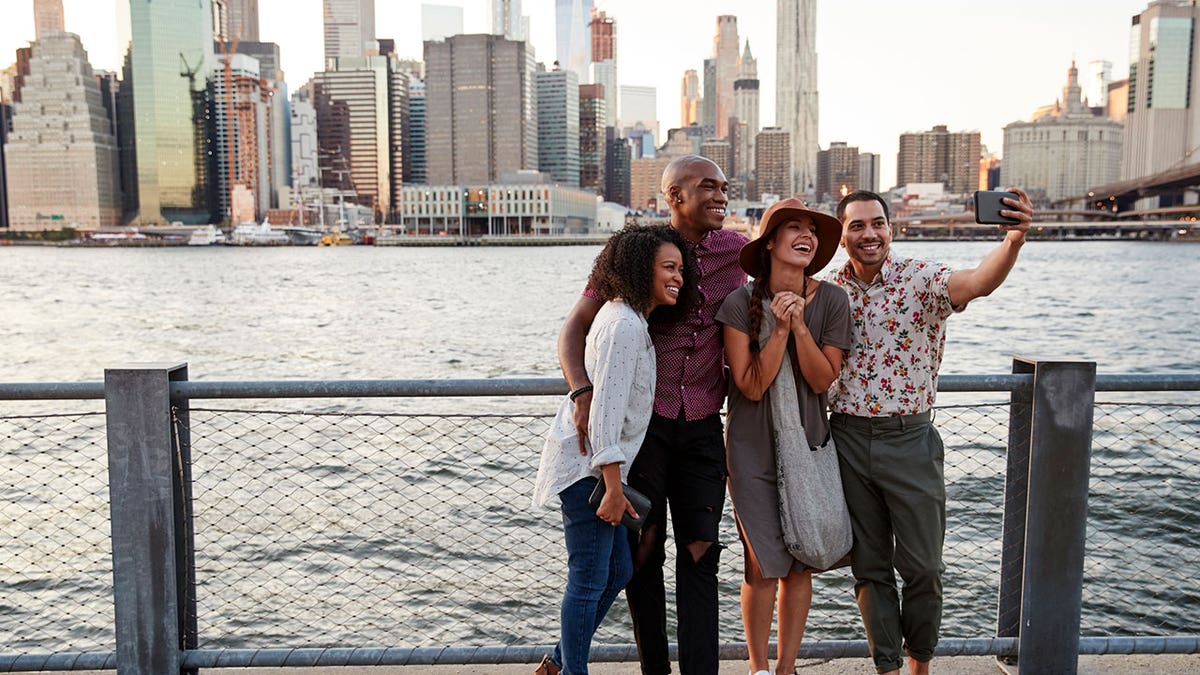We can heal our differences with a little help from our friends
Technology has made loneliness and division worse, but friendship can help fix America's problems
{{#rendered}} {{/rendered}}Americans have always had political differences, but in recent years those disagreements have devolved into vitriolic personal attacks and even violence. The proud tradition of open and spirited debate – a cornerstone of our democracy – is spiraling into a destructive force.
The 2024 elections have amplified this trend as candidates at all levels embrace mudslinging over the exchange of ideas. Their messages are trumpeted by news organizations, social media algorithms and partisan echo chambers.
While we might hope that newly elected officials and institutions will turn over a new leaf, it’s unlikely. Too much is at stake for them to abandon their strategy of appealing to the exact opposite of what President Abraham Lincoln called "the better angels of our nature."
{{#rendered}} {{/rendered}}THERAPY PONIES IN SPECIAL PROGRAM BRING BOOSTS OF JOY AND HUMOR TO THOSE IN NEED
As tempting as burying our heads in the sand might be, we cannot disengage; that approach is just as fatal to democracy as venomous attacks. The real solution lies in focusing on what we can change: ourselves. Each of us has a unique power – the ability to connect with others and foster meaningful, deep relationships. If we flex this power, we can heal our country’s divisions, one citizen at a time.

Friendships won't solve our problems over night. But they are a way to heal and make America stronger and less divisive. (iStock)
A problem rooted in loneliness
To understand how boosting relationships can pull us out of a cesspool of political discourse, we need to look at how we got into this place. It starts with the epidemic of loneliness that is currently sweeping across the country.
{{#rendered}} {{/rendered}}Research shows more than one in three adults aged 45 and up report feeling lonely on a regular basis, while an alarming 60% of younger people say they’re chronically lonely. U.S. Surgeon General Vivek Murthy warns that loneliness increases the risk of heart disease, stroke, and dementia. It also negatively impacts our civic discourse.
It’s no surprise that we find ourselves here. Much of the social infrastructure we used to rely on for finding friends is diminishing. Social clubs, recreational leagues and hobby groups are far less common, and church attendance has significantly declined.
These institutions have been replaced by technology that promised connection but left us feeling even more disconnected and angry. Staring into screens, we congregate in digital spaces packed with anonymous users and curated by algorithms that prioritize outrage and grievance over genuine connection.
{{#rendered}} {{/rendered}}The result is a vicious circle of vitriol and loneliness.
Breaking the cycle
Since politicians, the media or any external institution are unlikely to tamp down the rhetoric, we – as individuals – must take on the responsibility. The good news is it’s not a difficult lift. We just need to take the time to find friends and nurture those relationships.
That is, we need to use our power – that special, innate ability everyone has to connect with other people in meaningful ways.
{{#rendered}} {{/rendered}}The process begins with putting down the phones and getting out in the beautiful analog world. Attend local events, volunteer and get to know your neighbors. These simple interactions will open the door to new friendship opportunities.
Instead of seeking out how you’re different from another person, look for what you have in common. It could be having children in the same grade, work challenges, funny stories or even the weather.
You will encounter people you disagree with politically. When you do, practice some empathy. Put yourself in the other person’s shoes and try to understand their position. Listen to understand, not just to figure out your response.
{{#rendered}} {{/rendered}}Also, acknowledge that nobody has all the answers. Be curious, ask questions, and probe into the reasons for your differing opinions. Just ask any school-age child: A little humility goes a long way when it comes to forging relationships and learning.
Investing in relationships
Once you’ve been introduced to new people, you must work to maintain and build on that friendship. It won’t happen by itself.
Remember: Neglect is poisonous to friendships. And I’ve seen that most friendships wither simply because people were too busy to stay in touch. I’ve solved this problem by keeping a calendar that lists all the people with whom I want to reach out on any particular day.
{{#rendered}} {{/rendered}}CLICK HERE FOR MORE FOX NEWS OPINION
My connection calendar includes all the lunch and dinner dates you’d expect. But it goes deeper. I plan out interactions as simple as sending a text or email to check in on my friends. A simple "just thinking of you" and "how are you doing?" is enough to keep relationships alive.
Small acts of kindness also help. Offer to lend a listening ear or a shoulder to cry on in a time of need. Surprise your friends with unexpected gestures of gratitude and support.
{{#rendered}} {{/rendered}}We can rebuild our civic life, one friendship at a time.
CLICK HERE TO GET THE FOX NEWS APP
To borrow from Lincoln again, our neighbors are our friends, not our enemies. We must be friends. Our democracy depends on our ability to respect and coexist with those who hold different views. This doesn’t mean abandoning our values; rather, it means holding onto them while also embracing the basics of respect, empathy, and kindness.
{{#rendered}} {{/rendered}}The divisions in our country won’t be healed overnight. It will take a lot of work to return civility to civic life, and it’s our job as individuals to use our power and get the country on the right track.

